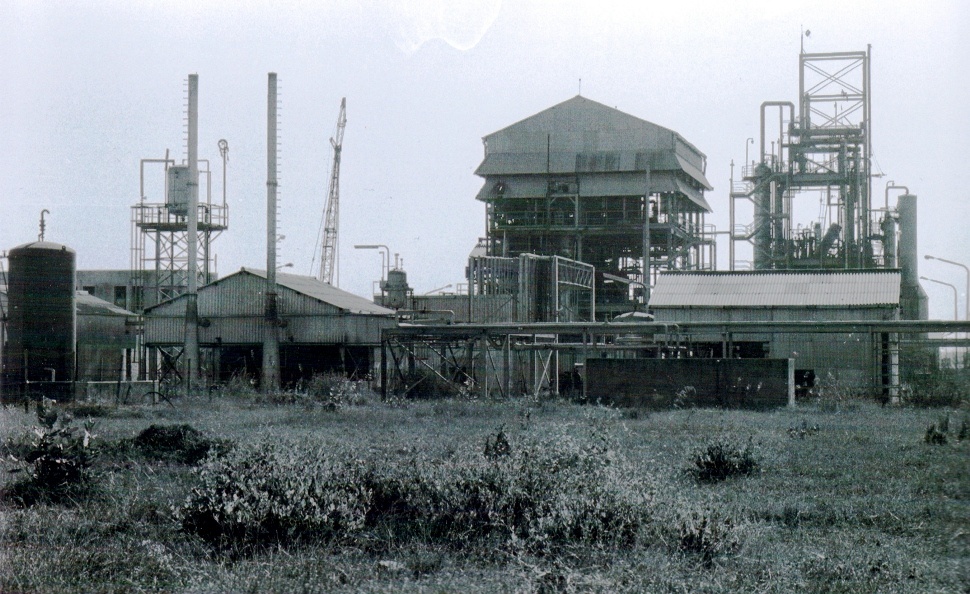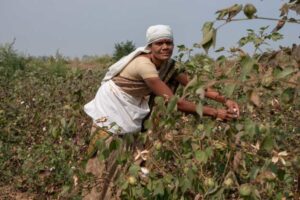Most people know Bhopal, Madhya Pradesh, India as the site of the world’s worst industrial accident. On December 2, 1984, a gas leak at the American-owned Union Carbide pesticide factory killed up to 8000 people and injured over half a million.
Now, Bhopal is the site of some wonderful restoration economy news. On April 30, 2022, Bhopal was where the Regenerative Production Landscape Collaborative (RPL Collaborative) was launched.
Vidya Soundarajan, Director, Ecological Footprint, WWF India said, “The Collaborative offers a platform for bringing in the varied actors to help maintain the integrity of the landscape and enhance the climate resilience and ecosystem benefits to the community – which forms the core of our focus.”
Founded by Laudes Foundation, IDH The Sustainable Trade Initiative, and WWF India, the RPL Collaborative has kickstarted the formation of public-private-community partnerships (Compacts) among Inditex, H&M Group, IKEA, Neutral, PepsiCo India, Sammunnati Finance, Jayanti Spices, INI Farms and S.V. Agri.
The landscape program offers an opportunity to develop business models that work on conserving natural resources such as soil, water, biodiversity and give more power to the producers who are lowest in the supply chain so that they can get a fair value for their efforts.
This holistic approach will shift from a commodity focused lens to a place-based development model, bring companies together to source responsibly and make inclusive decisions with community and producer organizations the norm.
Regenerative Production Landscape: People, Nature, Economy will build a sustainable landscape with administrative jurisdiction as the boundary in Chhindwara region of Madhya Pradesh to begin with. This will be a first of its kind partnership in the region to shift focus from a single commodity to the entire district. Chhindwara, as a sustainable landscape will become a geographical region that endorses synergies between economic, social and environmental goals with various stakeholders.
“For a transition to a just and regenerative economy, it is important for all stakeholders, producers, businesses, governments, investors and donors, to act as agents of change. Putting to test such an approach can bring innovative and inclusive solutions that are co-developed around a common agenda and vision. We must begin to face the fact that for system level shifts business as usual will just not cut it,” says Anita Chester, Head of Materials at Laudes Foundation.
The program is an innovative jurisdictional model that will foster agricultural ecosystems to create, catalyze and scale a model where:
- a locally driven, multi-stakeholder governance structure drives market transformation of commodity value chains like cotton, food crops, fruits and vegetables;
- producers grow agri-commodities using natural and regenerative farming principles that restore natural resources and reduce emissions from farming systems;
- smallholder farmers and communities thrive, through improved economic stability, enhanced livelihoods and greater participation in decision making;
government institutions enable sustainable and green growth; and - businesses are able to source responsibly while creating inclusive supply chain relationships.
IDH will bring its Production, Protection and Inclusion integrated landscape approach to the region for long term development.
“We strongly believe in the proposition of this approach – investing in sustainable production, improving smallholder livelihoods, growing the economy and in return, managing our natural resources sustainably. It is a partnership between the business, community and the government – and one that is locally owned and locally driven. Our plans and approaches start from a vision that sustainable impact will only last when there is a viable business case for farmers, as well as an infusion of investment that drives the supply chains – traders, buyers – in moving sustainability from niche to norm. We are excited about this partnership, to collectively drive transformation in Madhya Pradesh,” says Pramit Chanda, Country Director – India, at IDH.
Over the last five years, Laudes Foundation and WWF India have engaged with farmers and farmer groups, private sector and government as they developed farm centric interventions in Madhya Pradesh, India. IDH brings a track record of convening landscape programmes in 16 countries in Asia, South America and Africa – and catalysing markets and investments for sustainable change at scale. The collective vision is to now transition from a farm-centric approach to a contiguous landscape, that leverages a diversified cropping system, enabling farmer communities to earn a decent livelihood and practice farming that heals the environment.
“Conserving natural resources, forests and wildlife is the cornerstone of sustainable development. Forest Agriculture Mosaics that exist in biodiversity rich areas, such as in Chhindwara in Madhya Pradesh should be effectively managed through sustainable agriculture practices, strengthening of market linkages and support to farmers to develop economically viable agriculture practices. This platform allows various stakeholders to come together contribute to a regenerative production landscape and strengthening farmer resiliency to shocks in the future,” says Dr. Vidya Soundarajan, Director Ecological Footprint at WWF India.
Regenerative Production Landscape: People, Nature, Economy is a first step towards a reimagined future with these three organizations. The time is now for others to join in and do more together.
Highlighting the importance of sustainable sourcing in the collaborative, Daan Wensing, Chief Executive Officer, IDH The Sustainable Trade Initiative said, “The existing state of agricultural production and ecosystem management requires system transformation. We need to make the shift to regenerative agriculture, to make our food and agricultural systems able to adapt to climate change. And at the same time, we need to make sure farmers own enough to invest in their own futures. The private sector can play a huge role in catalysing systems change by sourcing sustainably, investing, bringing its scale, and working together on finding new pathways towards a sustainable future.”
The multi-stakeholder Compact also includes key-decision makers such as civil society organizations SRIJAN, Action for Social Advancement, Aga Khan Rural Support Programme; and farmer producer organizations.
The first Compact is being formed in Chhindwara District, Madhya Pradesh (MP), which will reach 20,000 farmers, and bring 20,000 hectares under regenerative agricultural practices.
Anita Chester added, “I am excited to see how the RPL Collaborative has grown. It is a unique multi-stakeholder initiative helping to address climate change and inequality, and catalyse system change from soil to society. The formation of these public-private-community partnerships are driving transition towards an inclusive, climate-positive economy, and I encourage businesses, investors, donor communities and producers to continue working together on regenerative landscape-based practices and steering the course for impact in the region.”
The second Compact will cover eight districts in western Madhya Pradesh, including parts of the Narmada Basin to reach 120,000 farmers in the State.
The RPL Collaborative contributes to revitalizing soil health, boosting smallholder farmer incomes, improving access to water, enhancing biodiversity, and addressing gender equity through the multi-stakeholder Compacts.
Preeti Maithil Nayak, IAS, Director, Farmer Welfare and Agriculture Development, Government of Madhya Pradesh said, “Madhya Pradesh is one of the leading states in terms of agriculture potential and productivity. However, we need a fresh approach to farming for food security and a better environment. In view of this, the Madhya Pradesh government has launched a crop diversification promotion scheme to promote crop diversification and investments in agriculture. We look forward to joining hands with the industry stakeholders in the RPL Collaborative to support the farmers.”
Members of a Compact work together to leverage sustainability and social commitments at scale and mobilize financial support for sustainability projects at the landscape level.
It allows businesses to source responsibly while creating inclusive supply chain relationships, provides smallholder farmers and communities to thrive through greater participation in decision-making, and lets producers grow agri-commodities using natural and regenerative farming principles that restore natural resources and reduce emissions from farming systems.
Ajit Kesari, Additional Chief Secretary, Department of Farmer Welfare and Agriculture, Government of Madhya Pradesh formally announced the Compact at an event in Bhopal.
Kesarie said, “Madhya Pradesh has been a frontrunner in sustainable agriculture. With our rich biodiversity, climatic diversity and topographical variations, we take pride in contributing to ~8% of the total food grain and ~25% of total pulse and oil seeds production in India. To reduce the impact of climate shocks we are heavily committed to promoting regenerative and landscape- based agriculture. This Compact will funnel investments into the region, enable better markets for farmers, ensure credit access and convergence with government policies and encourage companies to source sustainably.”
The RPL Collaborative and CGIAR- International Rice Research Institute recently conducted a baseline landscapes diagnostics of the first compact in Chhindwara using comprehensive and complementary approaches such as household surveys, GIS and remote sensing and high-tech laboratory soil assessment.
Photo of Union Carbide pesticide factory in 1985 courtesy of the Bhopal Medical Appeal.


